Thursday 12th to 19th September 2019
The next island west from Komodo is Sumbawa, a land of volcanoes. The tallest of these is Gunung Tambora which erupted in 1815 in what is the most powerful eruption in modern history, killing tens of thousands of Sumbawans, its explosion heard over 2000 km away. Worldwide weather was affected and in Europe, 1816 became known as ‘the year without summer’ with crops failing, temperatures plummeting and many thousands dying from the cold, food shortages and disease. As we passed the small island of Pulau Sangeang, just off the northeast coast of Sumbawa we heard a boom and saw smoke issuing from its volcano, Gunung Api.
Sumbawa is much poorer and less developed than its neighbours, Bali and Lombok to the west and Flores to the east. The island is predominantly Islamic, deeply conservative and few tourists spend much time here apart from at the surf resorts on the south coast.
Our first stop on Sumbawa was the village of Wera which has a tradition of wooden boat building, with the ships being built on the beach under the shade of palm leaf awnings. After a night at anchor we headed over to look around the boats. The children playing on the beach were friendly enough, wanting sweets, but the reception was otherwise rather cool. Having been used to being greeted as if we are celebrities since we arrived in Indonesia, we soon realised we weren’t a novelty here as a group of other tourists arrived from Komodo on a tour boat to look round the village.
The village felt very poor, the beach was strewn with plastic rubbish, goats and chickens wandered around and a few cows were tied up next to the houses. A woman invited us to look at her weaving which she did on a small loom in the basement area under her house and asked for money for her children as we didn’t have enough cash on us to buy one of her woven sarongs. One of the men from the village followed us back to Vega asking for ‘souvenirs’. We gave him a few writing pads, pencils and sweets for the kids.
The rally destination on Sumbawa was the small village of Saleh at the bottom of a long deep bay, a 125 mile sail west then south from Wera. We decided to do an overnight sail and soon found ourselves in the company of other rally boats coming from Komodo and Flores.
Around dawn, after a long night at sea, as we were heading south towards Saleh, we overheard a conversation on the VHF radio between Michael on Hylite and another rally boat. The engine on the other boat had failed and they were being blown onto a lee shore. The suggestion that they raise their sails to escape going aground was not getting a coherent response. Eventually other rally boats came over to assist and the boat was taken in tow by Carl on CV. I went on board with two other cruisers (one another doctor) to find the couple, both in their 70s, exhausted, confused and dehydrated but with no obvious infection or illness. The boat was chaotic with empty water tanks and little sign of much food on board. We made them eat and drink then go to bed whilst their boat was towed for 7 hours to the rally anchorage. In the meantime we remained on board and I learnt how to play shithead (an excellent card game).
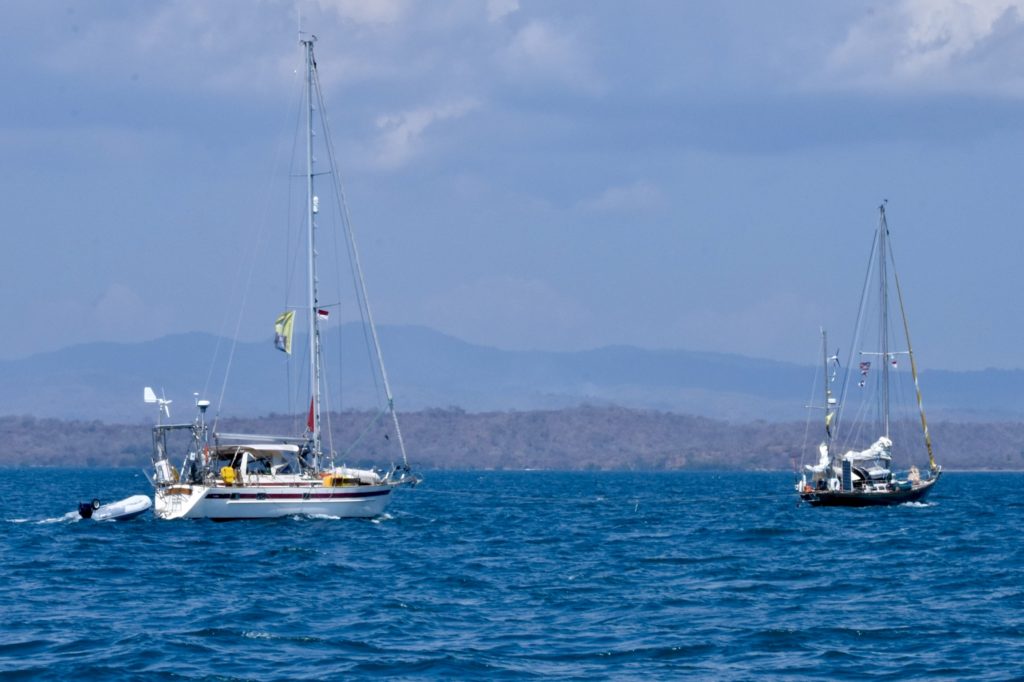
Over the next few days other rally members fixed their engine, which had not been properly maintained, and provided them with more diesel which they were short of. Their families in Europe were contacted and two boats sailed with them, in easy day sails, to a marina on Lombok, the next island, hoping to persuade them to give up sailing in Indonesia as there are still several long overnight passages ahead of us, with FADs to collide with, fishing boats to avoid and nets to get tangled with – not the easiest sailing even if you are young and fit. The couple have decided they will continue on to Malaysia and the rally fleet is concerned how they will cope and that they might put themselves and others at risk.
At Saleh that evening we attended the welcome ceremony with traditional music and singing.
Two little boys did a dance of stylised fighting…
We were encouraged to dance along to the bands, one of which played Latin and pop hits from the 1970s and ‘80s, and the musicians in the rally also formed a small band.
The atmosphere was welcoming and celebratory but the women in their hijabs who watched and smiled in bemusement could not be persuaded to join in as we rather self-consciously bopped around. There was music and dancing every evening that the rally was in town, an area by the anchorage set aside for this, decorated with flags and with vendors setting up stalls. Locals from all around flocked here on their scooters to enjoy the celebrations and watch the antics of the tourists.
It was an early start the next morning to drive two and a half hours on a tarmac road through small villages, passing ornate mosques, fields of corn and rice, fish farms, the roads busy with motorbikes and scooters, and lorries loaded with well groomed buffaloes, people crammed together in the back of trucks and on the roofs. We were heading for the Finals of the World Water Buffalo Championships… and very exciting it was too.
First the finishing post was blessed and hammered in to the mud at the end of the track:
The lovely ladies who carried the rice and spices for the blessing:
The races were thrilling, the riders using a whip or just their bodily weight to direct the buffaloes down the long, muddy course:
Seven of the cruisers entered the competition, standing on the triangular frame between two buffaloes and being sure to jump off in the deep mud before the end so as not to injure themselves. They suspected that they were given the smaller and more docile buffaloes, but even so described it as exhilarating and part of me wished I’d joined in too, but I was too worried about breaking a wrist or ankle.
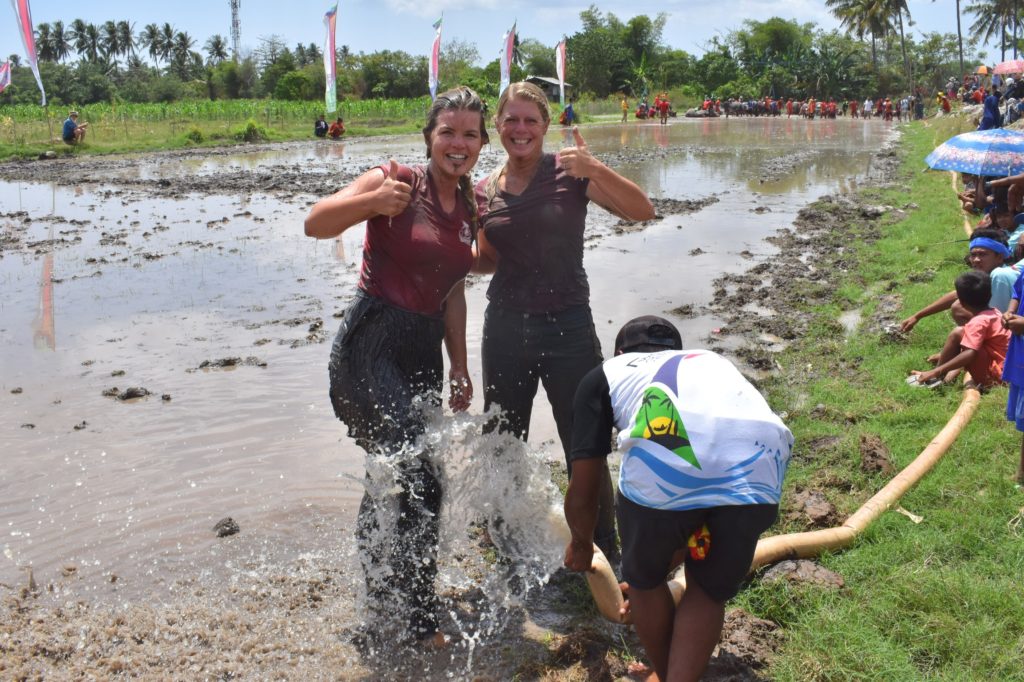
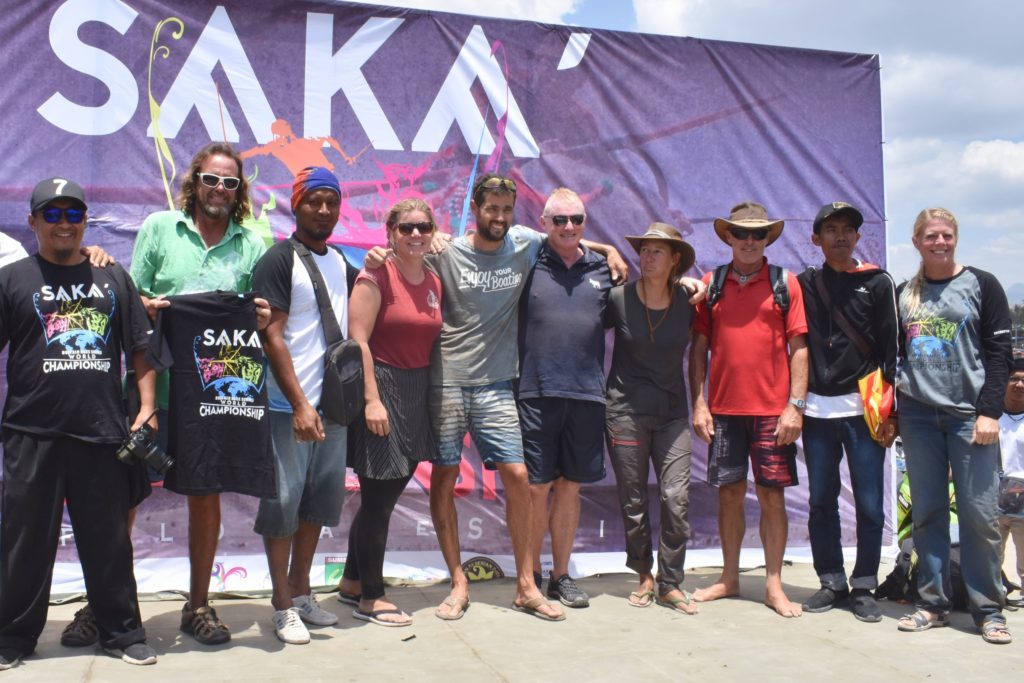
Other tours were arranged over the next three days to visit villages where coffee is grown, where the smallest bees in the world make a sweet, liquid honey, and where women weave colourful sarongs.
Roasting and crushing coffee beans and enjoying the coffee:
Collecting honey from the hives:
Regaining our celebrity status we were taken to a village in the hills where we received an ecstatic welcome.
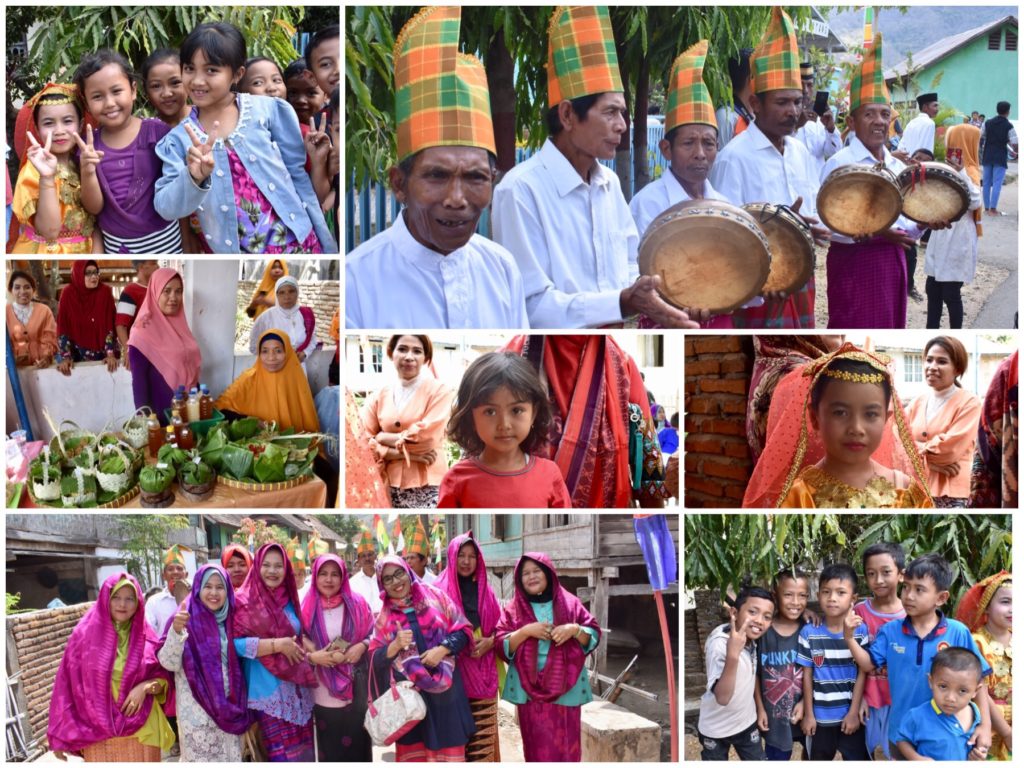 …. a display of fight-dancing from the men:
…. a display of fight-dancing from the men:
The anchorage at Saleh was full of spider boats, a wooden framework protruding from some 20 feet on both sides of the long, painted hull from which the fishing nets are suspended…
The highlight of our time in Sumbawa was the opportunity to swim with whale sharks…. or so we hoped. Two wooden long boats collected the various rally crew from their yachts at 3am. We tried to make ourselves comfortable on the wooden floor of the open boat for a two hour rather cold, wet trip north up the bay to where a group of spider boats had been fishing overnight and were preparing to raise their nets at daybreak. After motoring from one boat to the next with no joy, by the time we reached the eighth boat I was beginning to think the trip had been in vain and, as I was wondering whether I’d want to try again the next night, the crew of the spider boat indicated the presence of a whale shark.
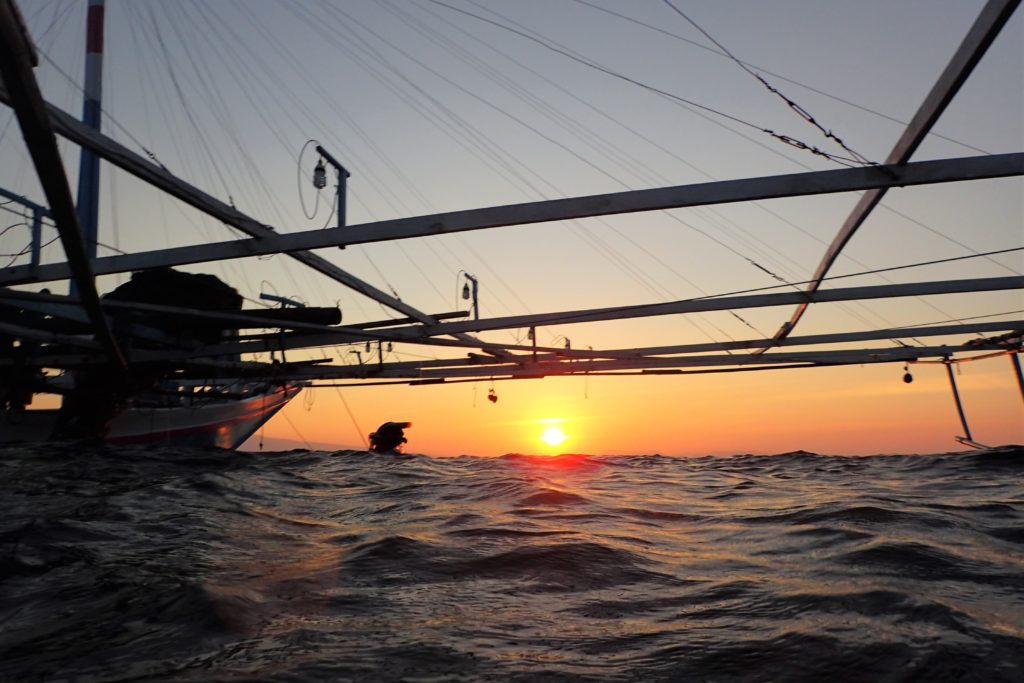
Within a minute we were over the side and into the water and suddenly right below me glided the massive creature with grey and white markings, perhaps 24 feet long, its head 4 feet across and its huge mouth opening and closing, so near that I had to fin to move out of its way before it rubbed against me in passing. It was thrilling albeit rather daunting to be so close. The whale shark swam in circuits around the spider boat, repeatedly returning to where the fishermen were throwing scraps of their catch back into the water for it, completely unperturbed by the 15 or so snorkelers in the water, all vying to get the best footage on their GoPros. We spent around 30 minutes in the water with it until the other boat with another 15 rally crew arrived and we let them enjoy the experience.
The following morning we left the anchorage soon after dawn on a still, calm morning to motor north out of the bay, the wind only increasing enough to let us sail as we turned to head west again. From the nearby hillside was smoke, from clearing land or burning rubbish we weren’t sure. At times dolphins accompanied us, playing around, leaping and diving at the bow.
To break the journey to the Lombok we tucked in for the night in the lee of Pulau Krakatoa, a tiny island to the west of Sumbawa, alone apart from a few put-put canoes with outriggers. The sun set behind Gunung Rinjani, the volcano on neighbouring Lombok, as we sat in the cockpit to eat supper, watching small fishing boats gliding slowly past, the bright spotlights on their bows pointing down into the water below to attract fish.
The next morning we were up at 5.30am and in the silvery dawn light found the bay full of small fishing boats pulling their nets in and heading back to their villages on the main island. The sun rose a glorious, glowing, red orb as we set off and out to sea passing the last of the fishing boats on their way home after spending the night out in their open canoes whilst we had slept well in our snug cabin.
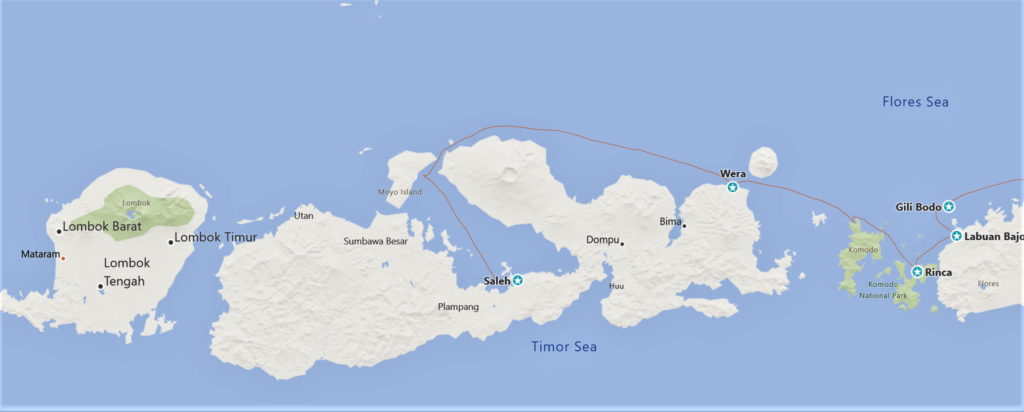
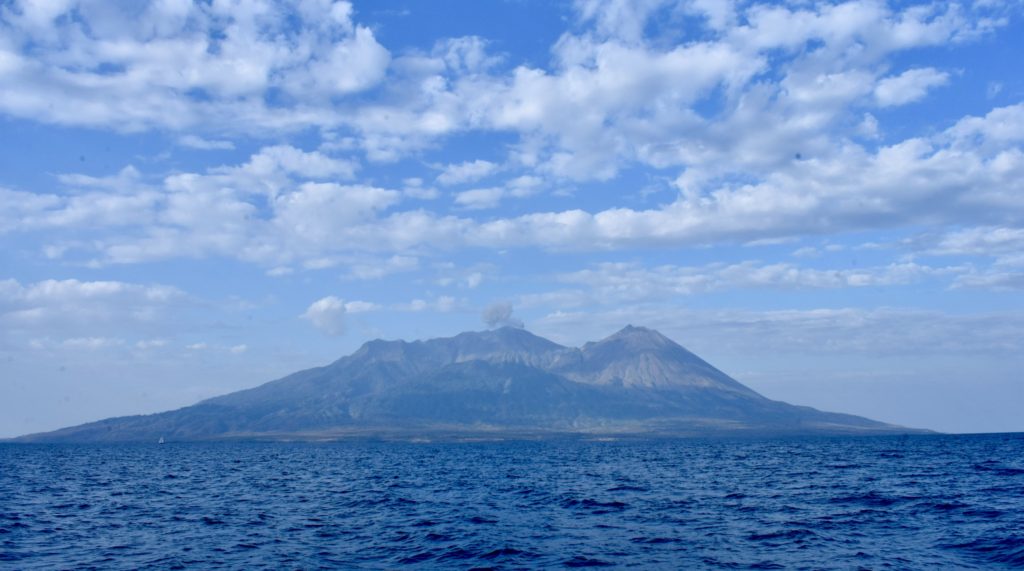
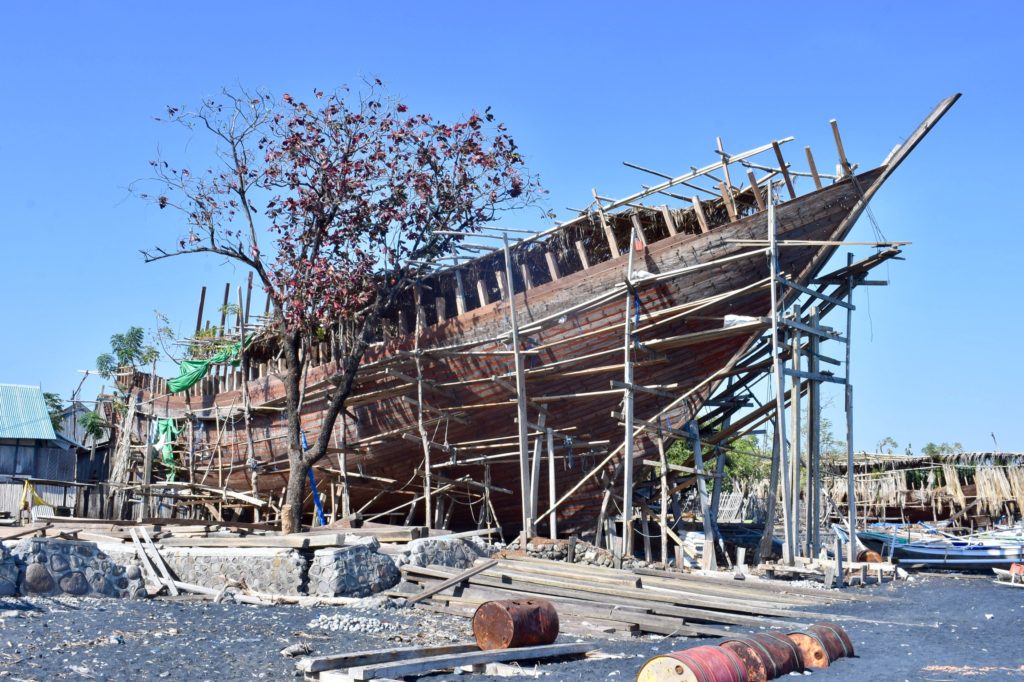
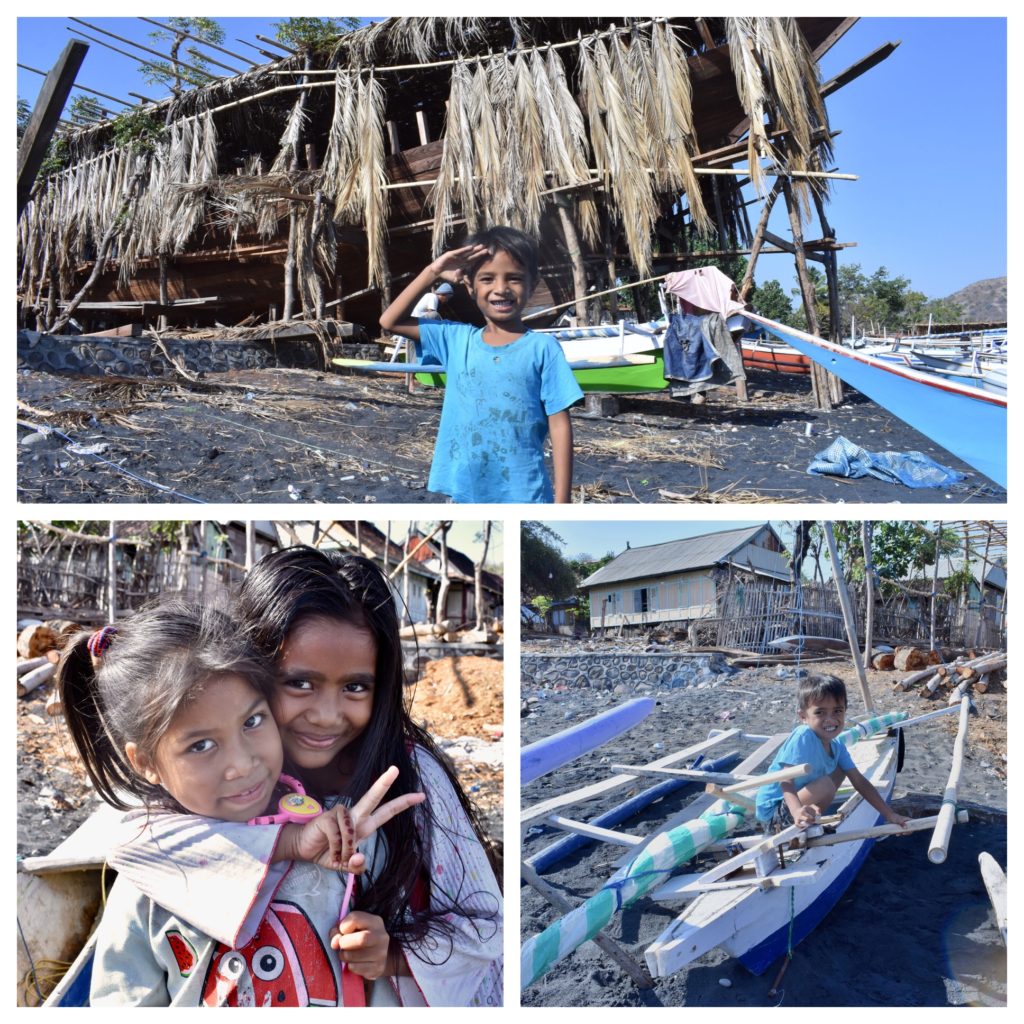
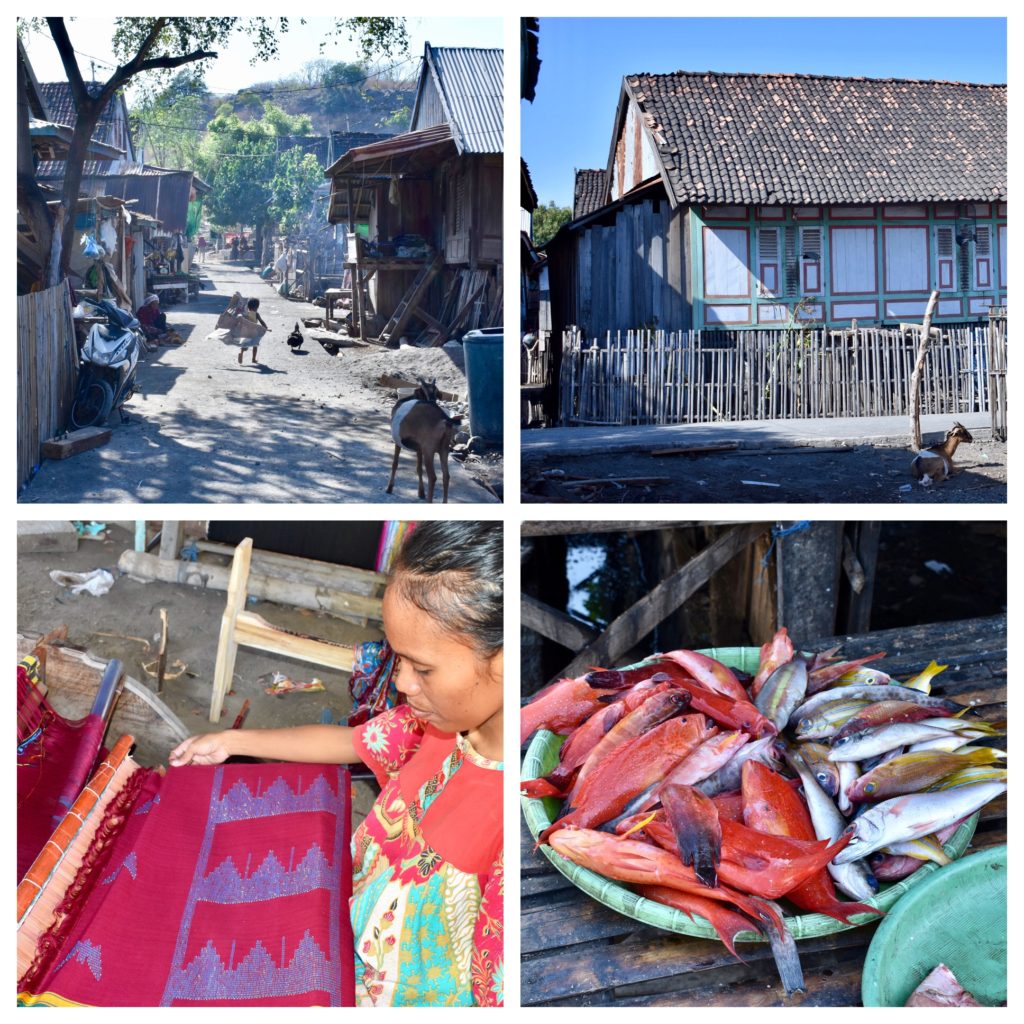
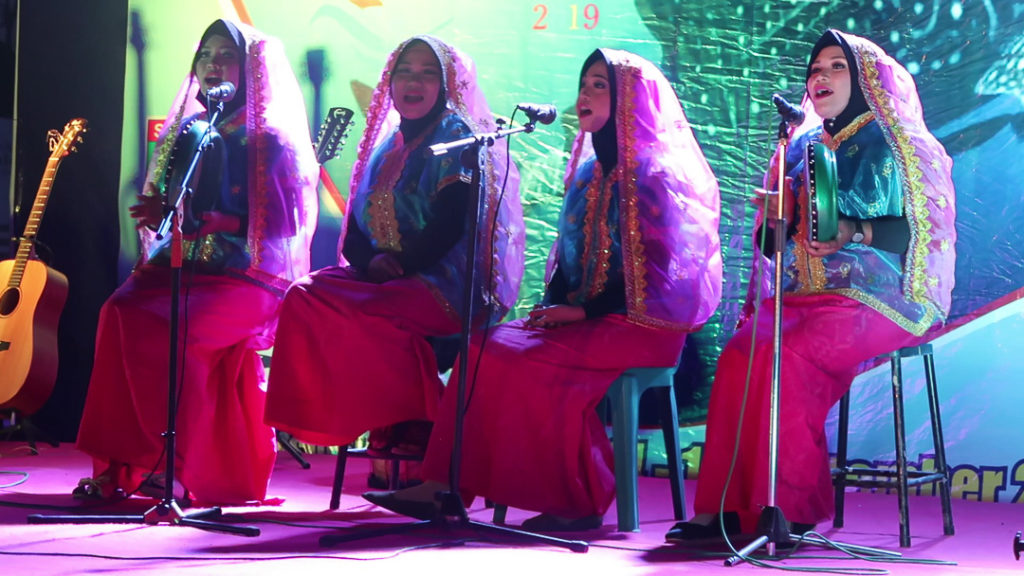
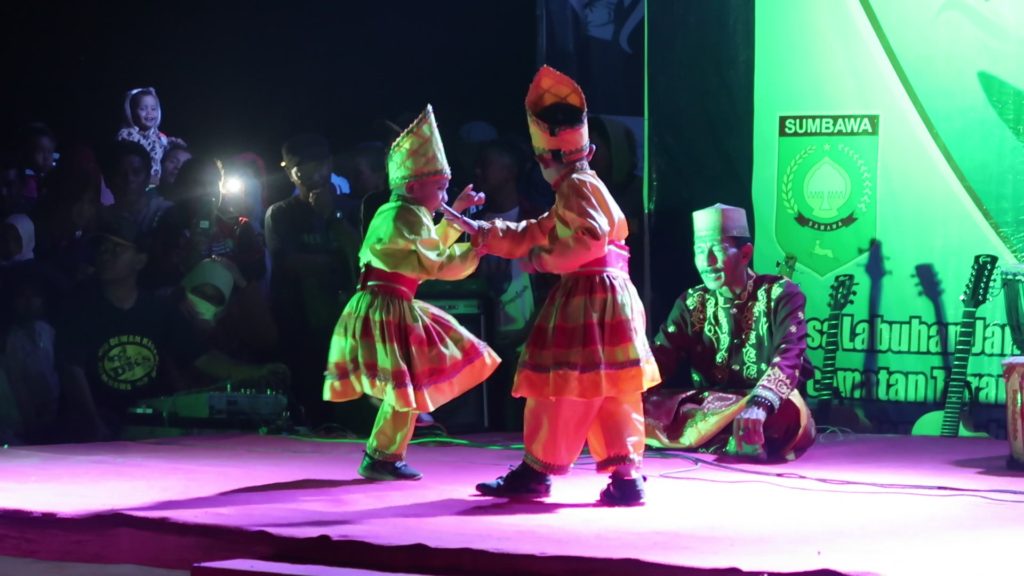
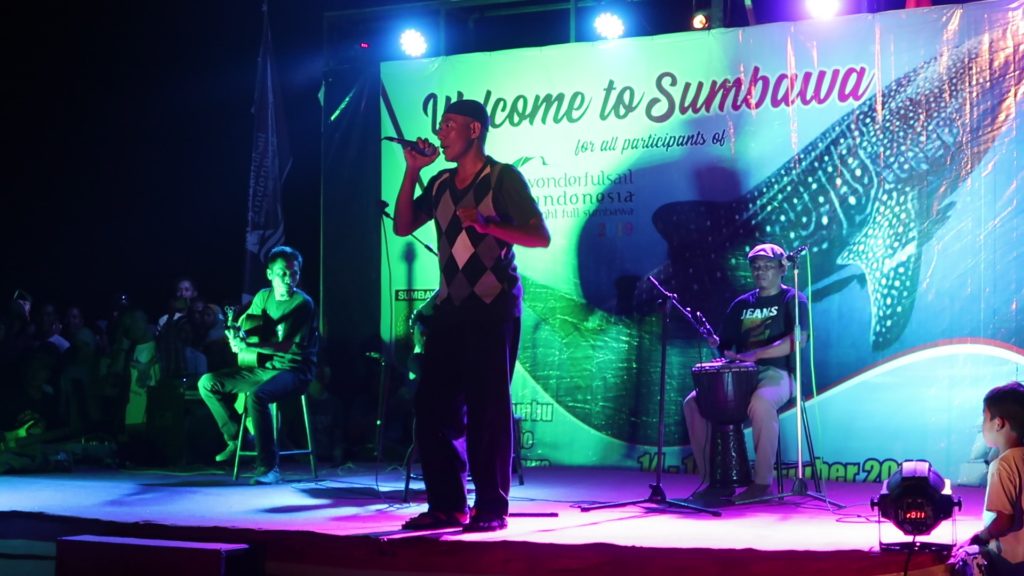
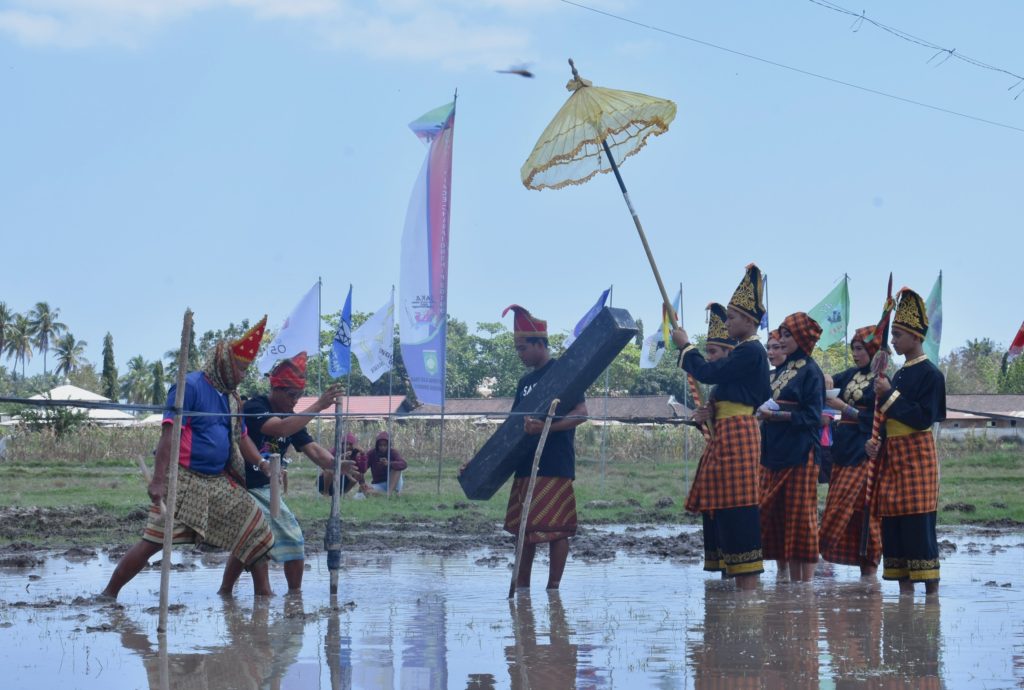
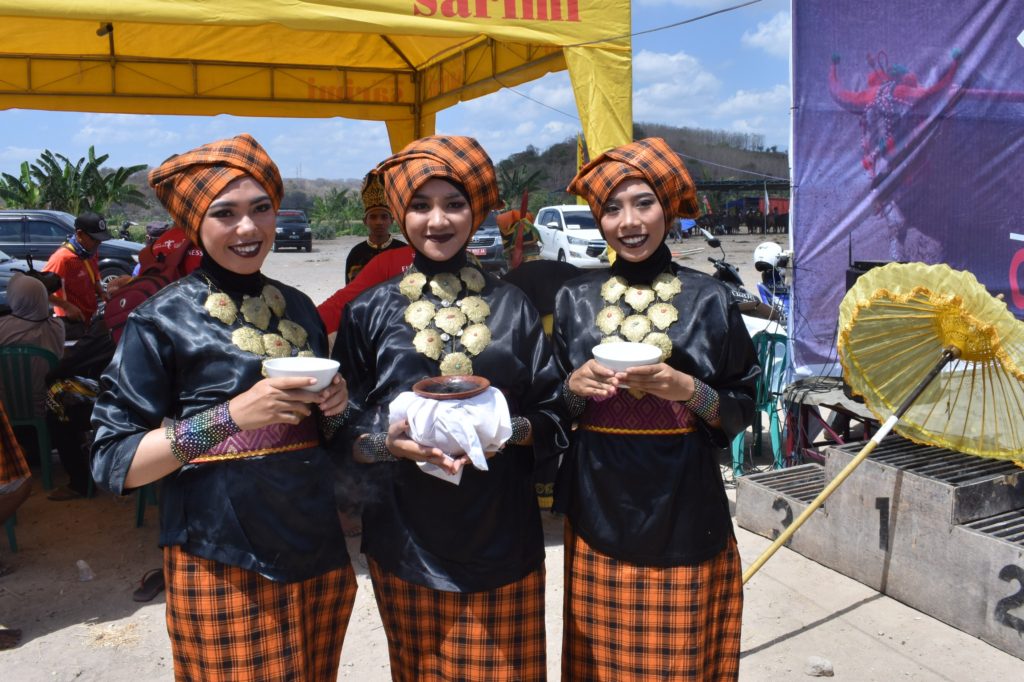
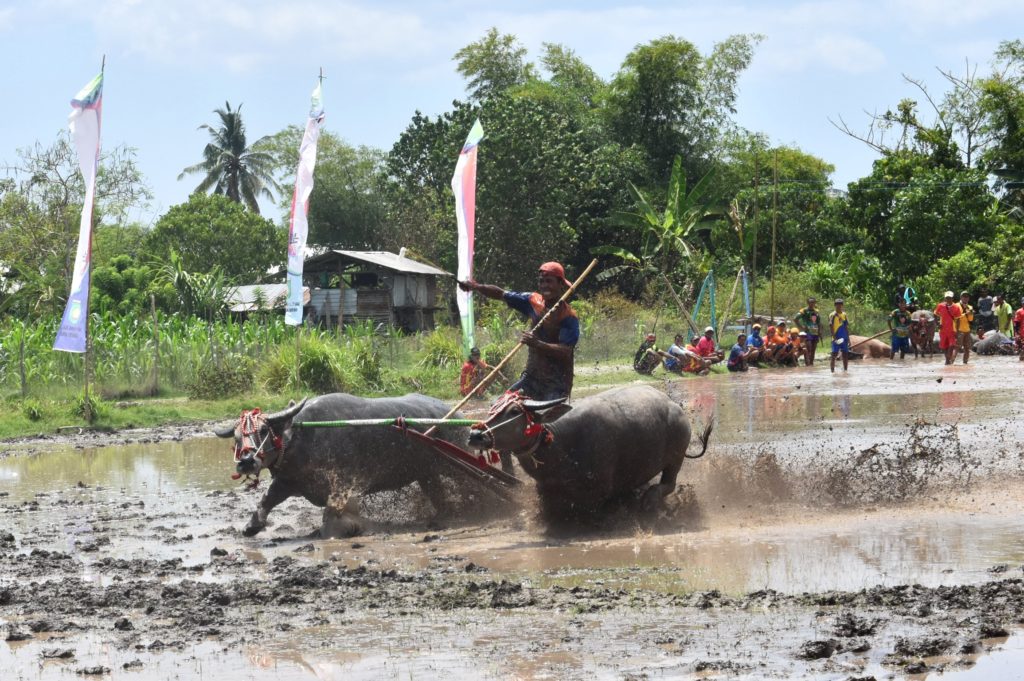
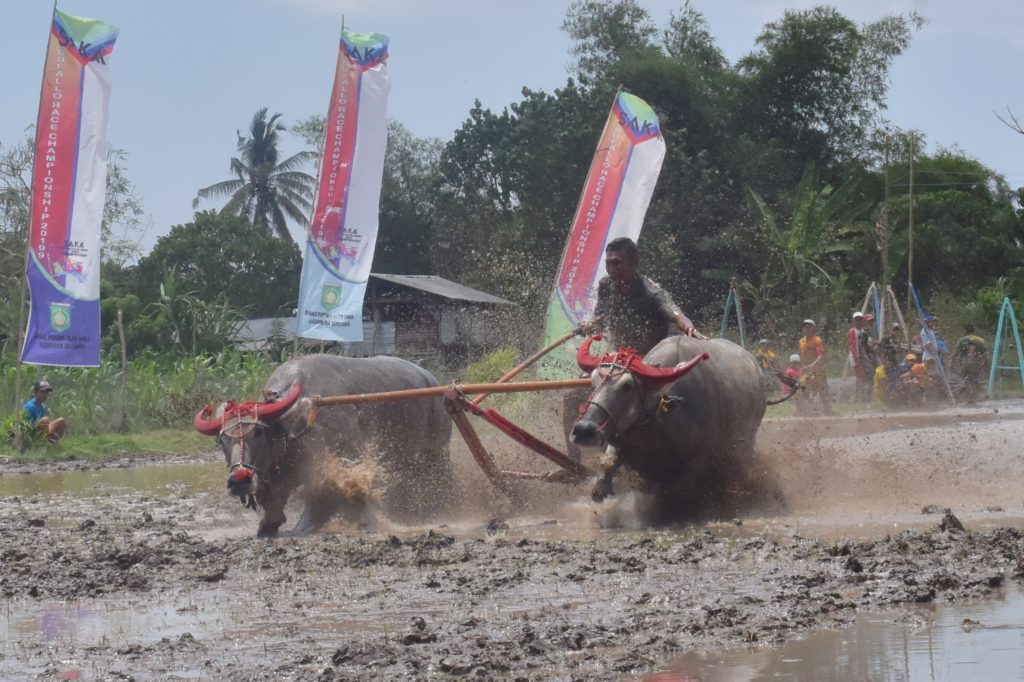
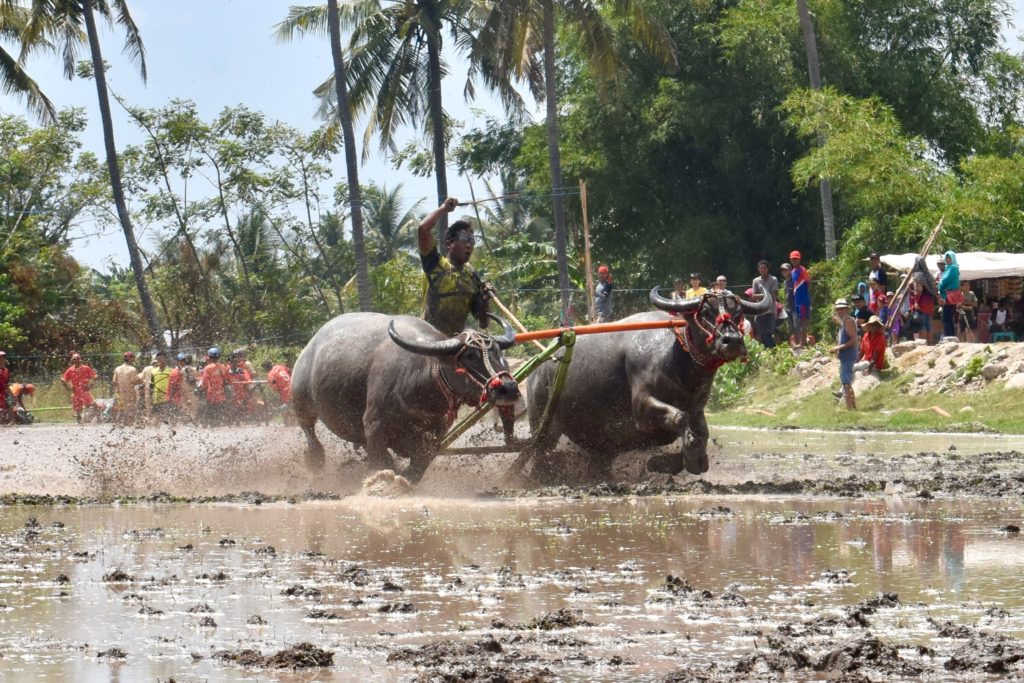
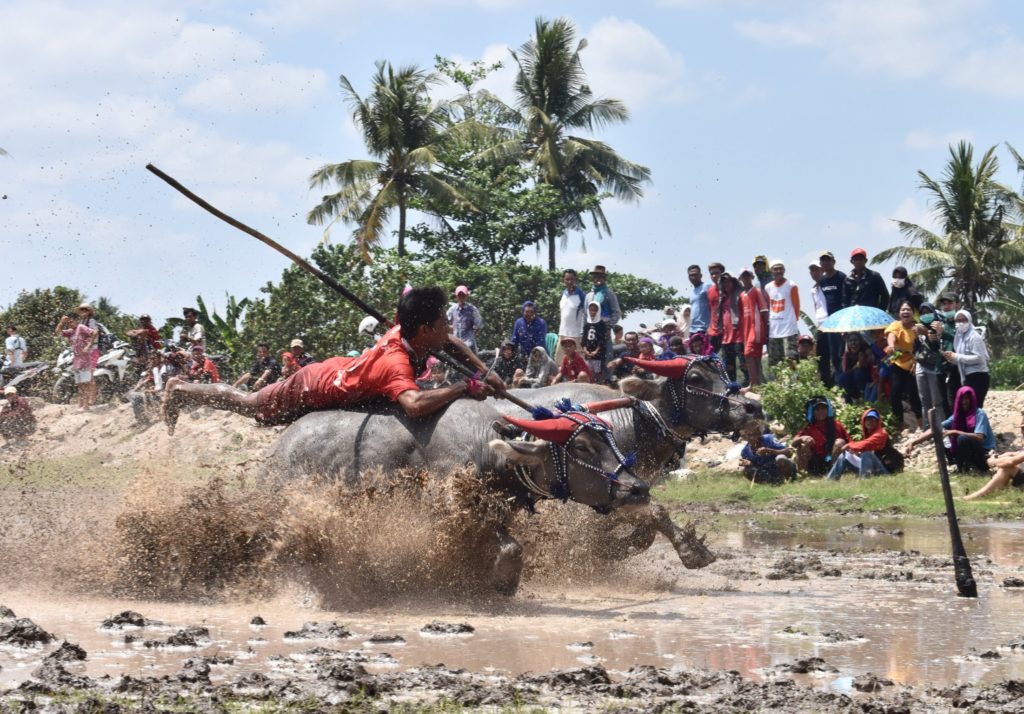
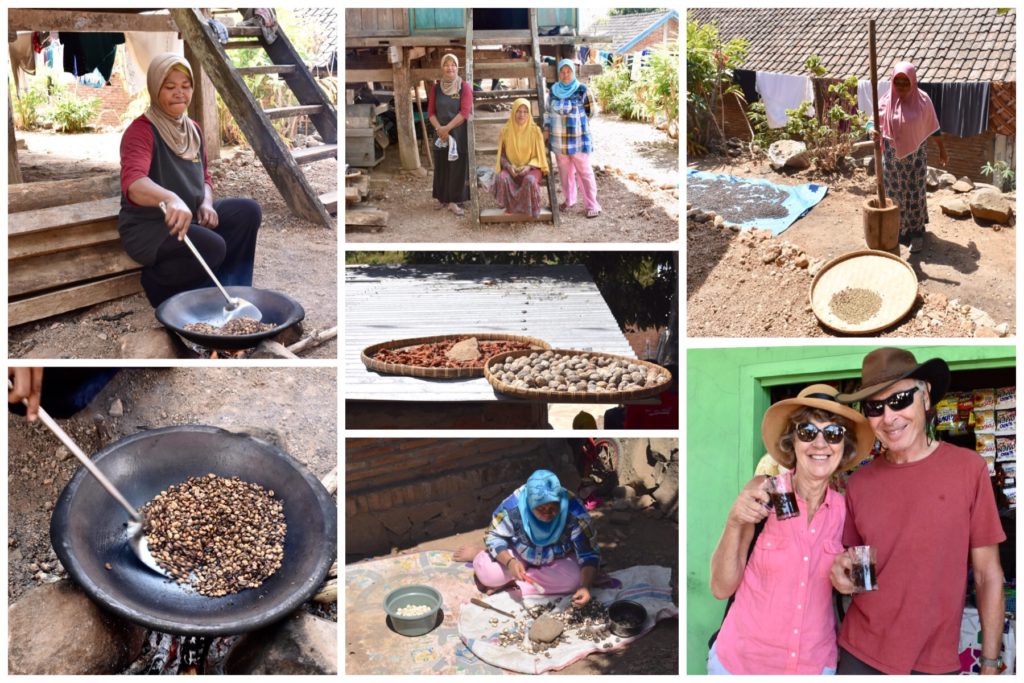
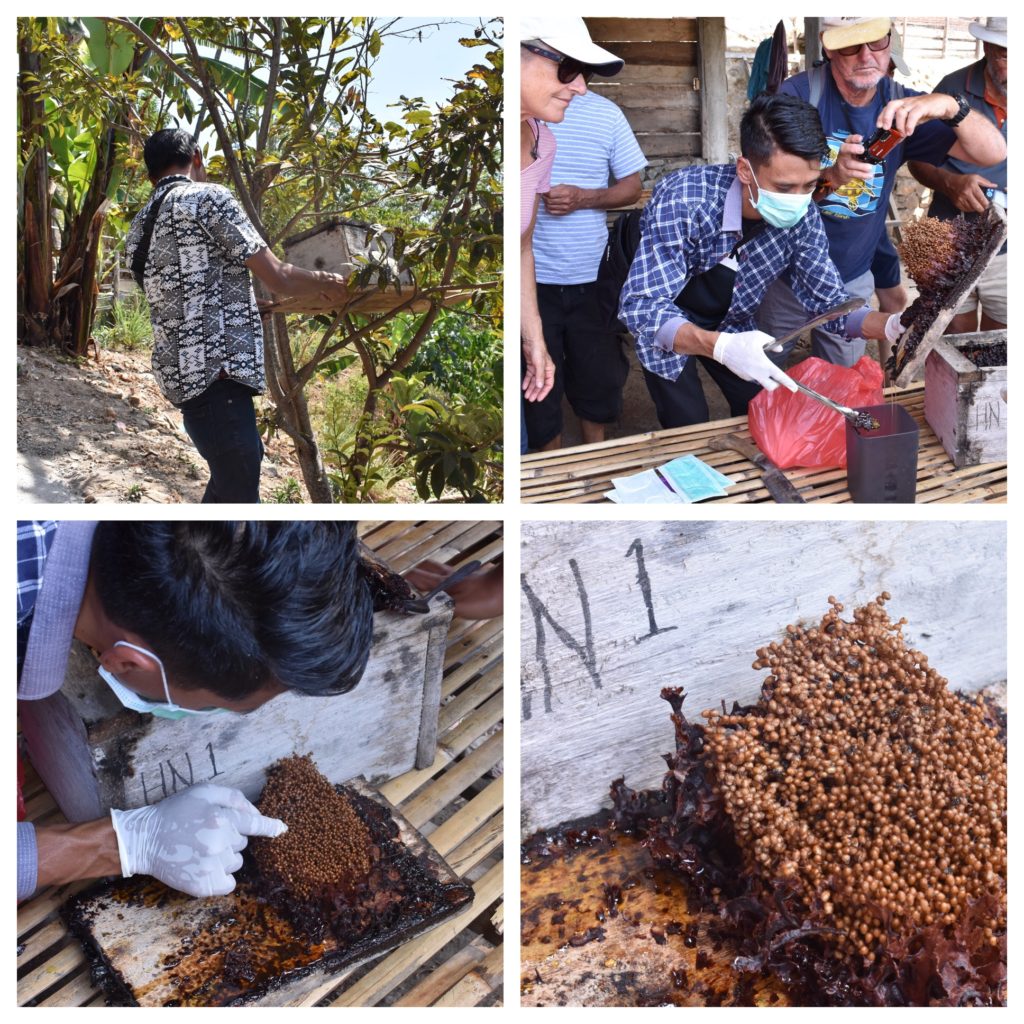
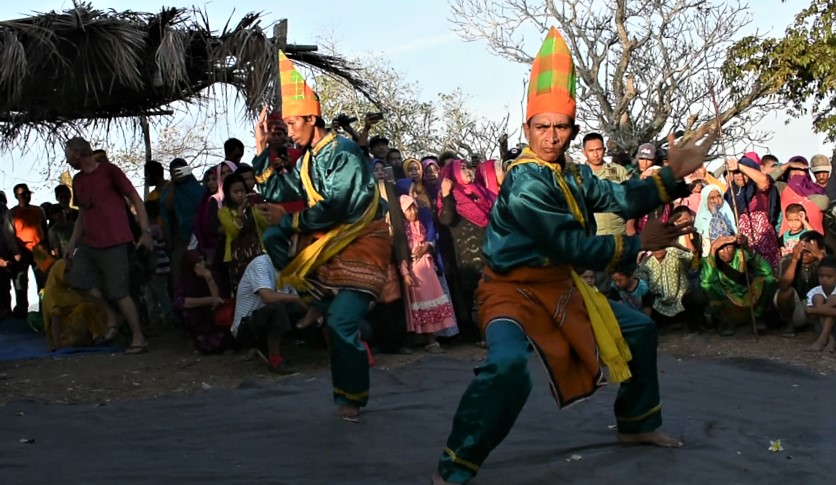
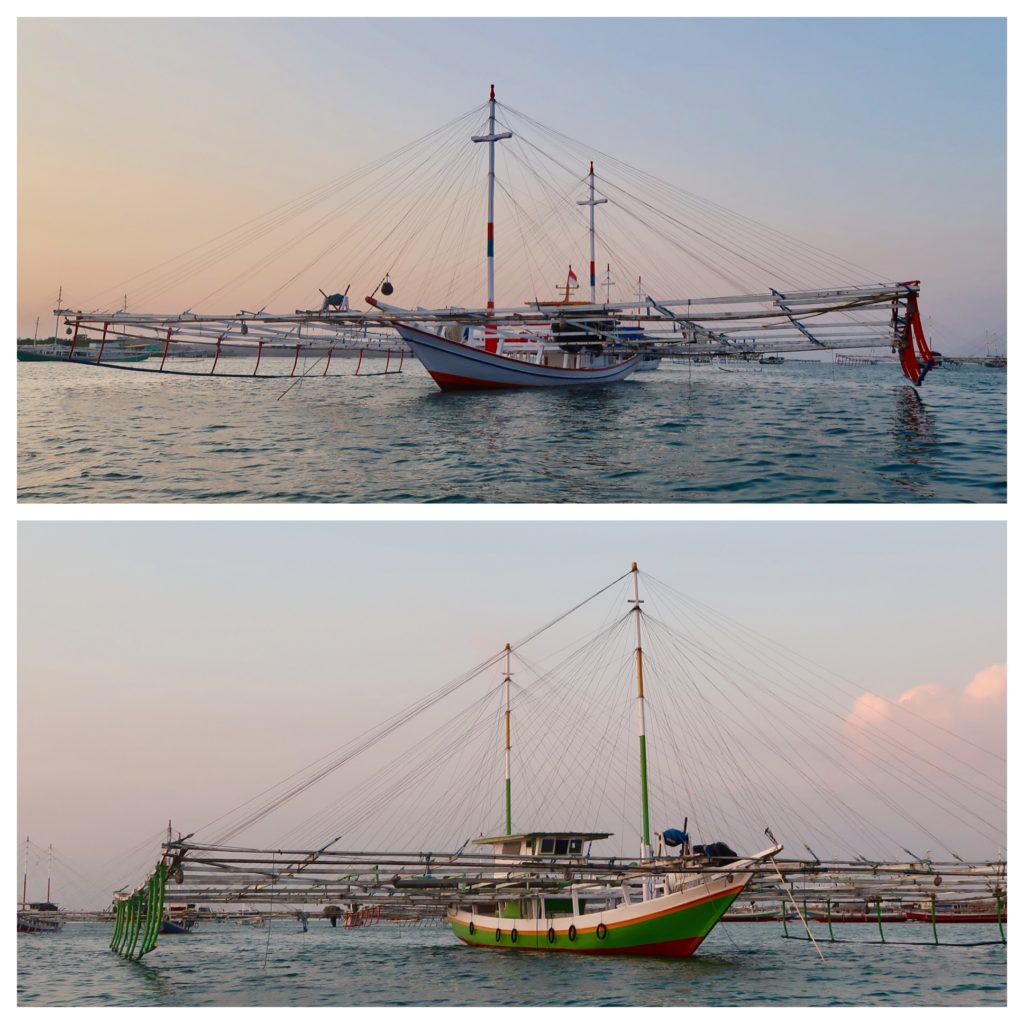
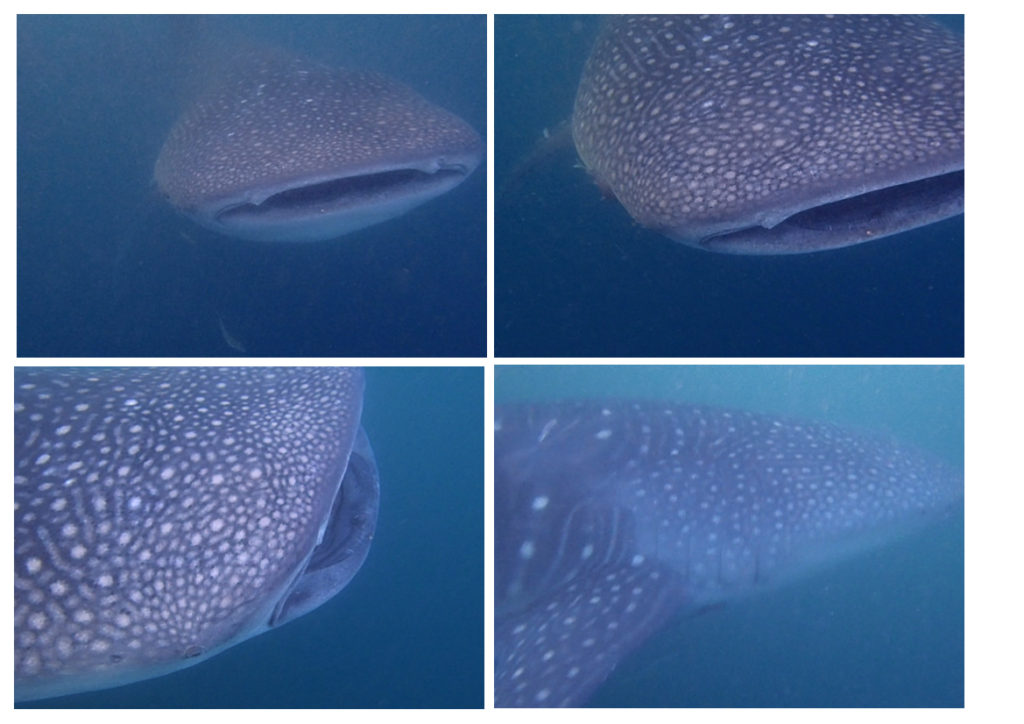
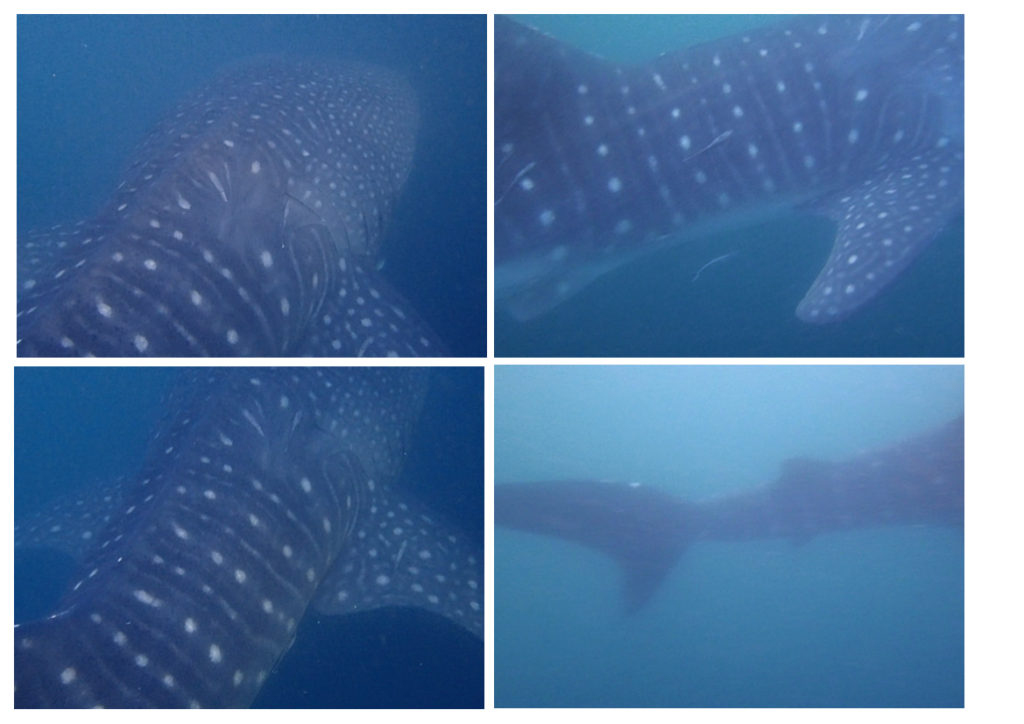
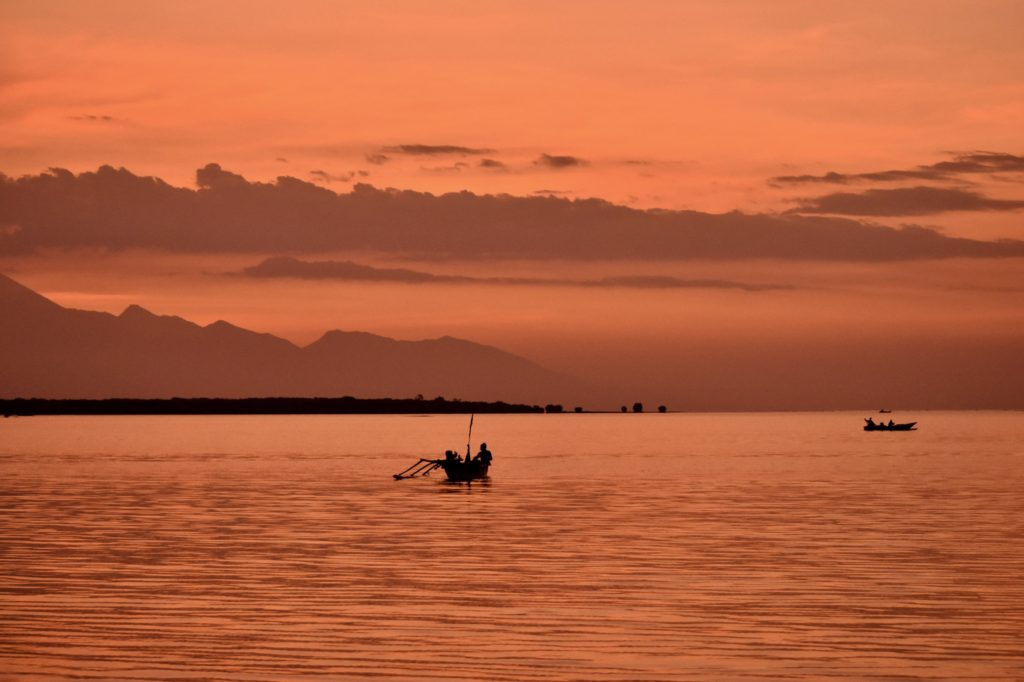
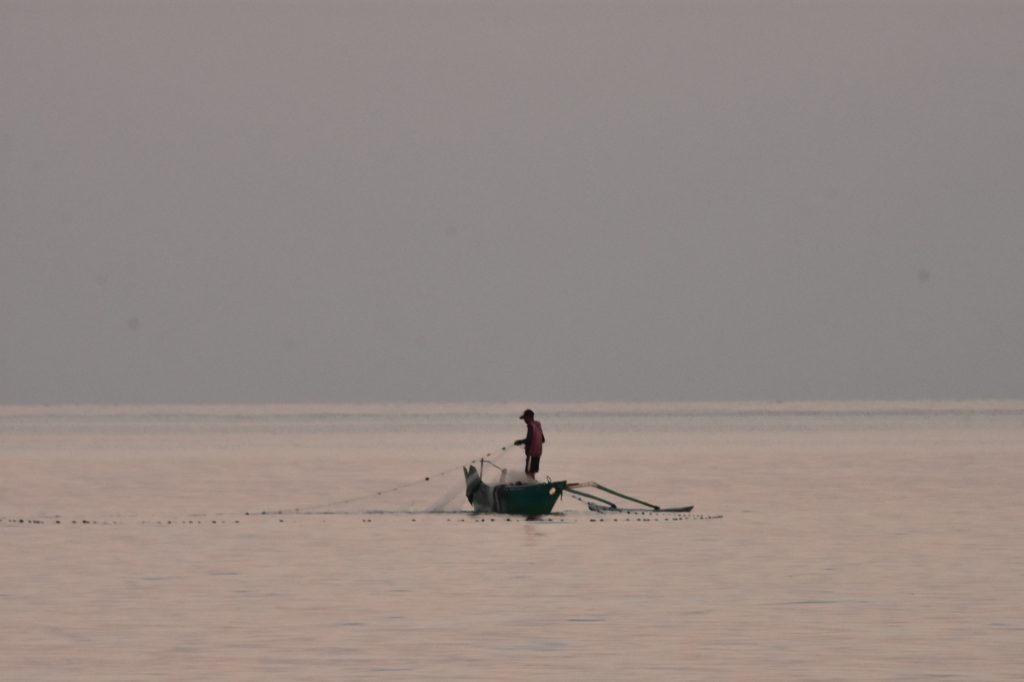
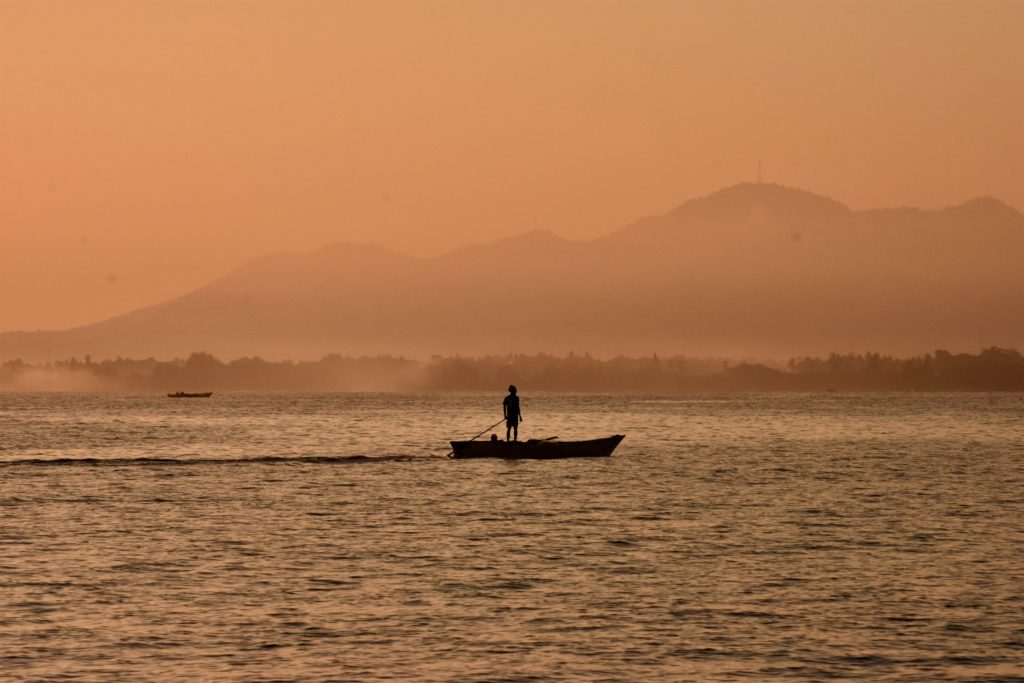
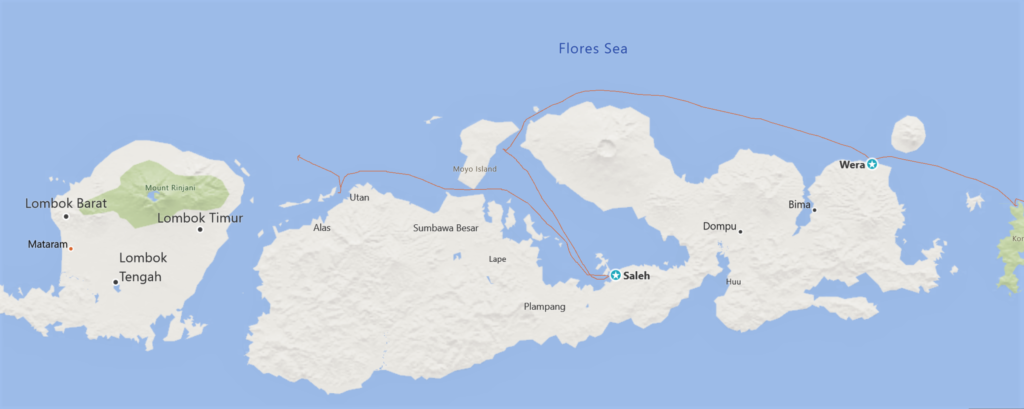
5 Comments
Paul Bayley
October 28, 2019 - 8:08 pmGosh the other boat and the couple were lucky to have you around. Your swimming with the sharks beats Disney?..
Best wishes
Paul
annie
November 7, 2019 - 6:15 amThanks, Paul. The cruising community are amazing in the way they all help out when someone has a problem. The whale shark was just sensational xx
Sarah and Mahdi
November 1, 2019 - 6:50 amWow! What amazing experiences you are having! Such beautiful photos. Love to you both. Xxx
annie
November 7, 2019 - 6:08 amThanks! Yes, it was pretty wonderful. Look forward to seeing you soon xxxx
Carlos Schulze
November 7, 2019 - 6:26 amWhen are you “swinging” by California???…LOL. Cheers